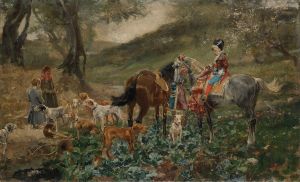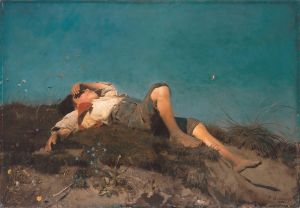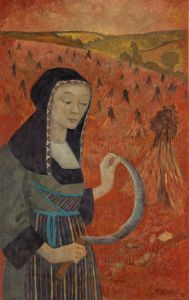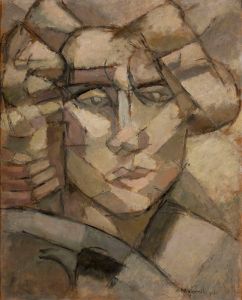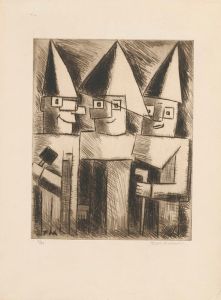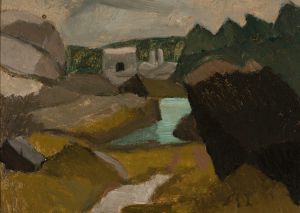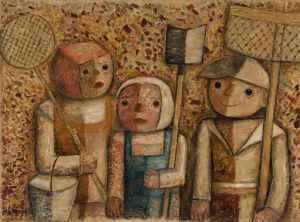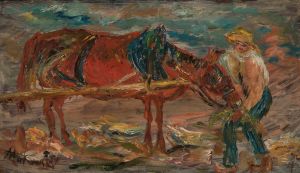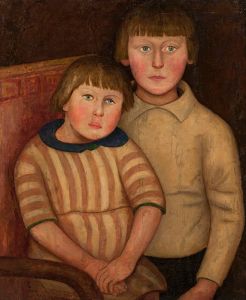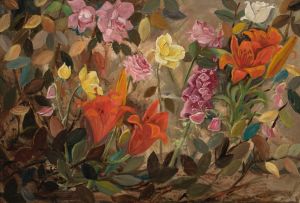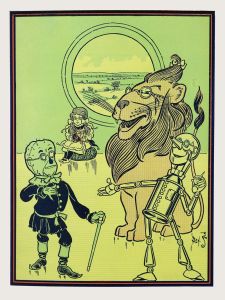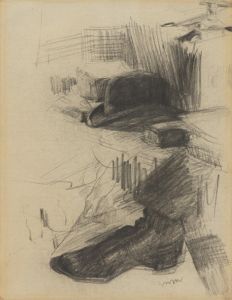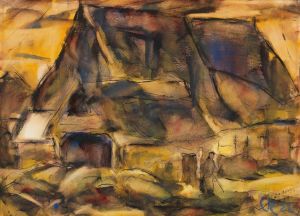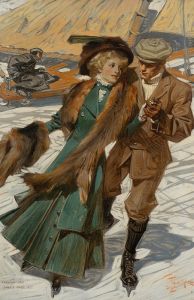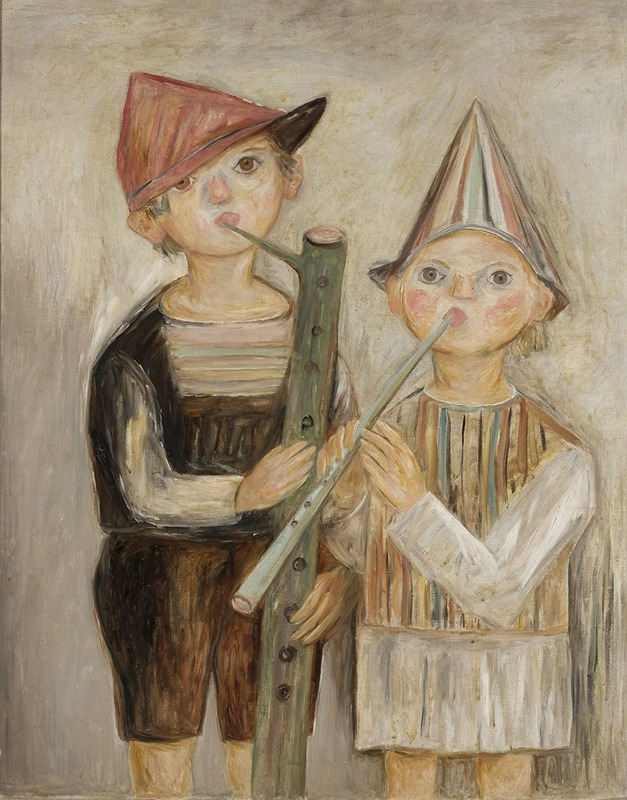
Boys with rural pipes
A hand-painted replica of Tadeusz Makowski’s masterpiece Boys with rural pipes, meticulously crafted by professional artists to capture the true essence of the original. Each piece is created with museum-quality canvas and rare mineral pigments, carefully painted by experienced artists with delicate brushstrokes and rich, layered colors to perfectly recreate the texture of the original artwork. Unlike machine-printed reproductions, this hand-painted version brings the painting to life, infused with the artist’s emotions and skill in every stroke. Whether for personal collection or home decoration, it instantly elevates the artistic atmosphere of any space.
Tadeusz Makowski was a Polish painter known for his unique style that combined elements of folk art and modernism. Born in 1882 in Oświęcim, Poland, Makowski initially studied classical philology at the Jagiellonian University in Kraków before turning to art. He later attended the Academy of Fine Arts in Kraków, where he studied under prominent Polish artists like Józef Mehoffer and Jan Stanisławski. In 1908, Makowski moved to Paris, where he became part of the vibrant artistic community and was influenced by the works of Paul Cézanne and the Cubists.
"Boys with Rural Pipes" is one of Makowski's notable works, reflecting his fascination with rural life and childhood themes. Makowski often depicted children in his paintings, capturing their innocence and simplicity. His style is characterized by a blend of realism and abstraction, often using geometric forms and a muted color palette. This painting exemplifies his ability to convey emotion and narrative through minimalistic yet expressive compositions.
The painting features a group of boys playing traditional rural pipes, a subject that highlights Makowski's interest in folk culture and music. The figures are stylized, with rounded forms and simplified features, a hallmark of Makowski's approach to capturing the essence of his subjects. The use of earthy tones and soft lighting creates a serene and nostalgic atmosphere, inviting viewers to reflect on the simplicity and joy of rural life.
Makowski's time in France exposed him to various avant-garde movements, yet he maintained a distinct style that was deeply rooted in his Polish heritage. His works often reflect a sense of longing for the pastoral landscapes and traditions of his homeland, even as he embraced modernist techniques. "Boys with Rural Pipes" is a testament to this synthesis of influences, showcasing Makowski's ability to merge the old with the new.
Throughout his career, Makowski exhibited his works in numerous galleries and salons, gaining recognition for his unique artistic voice. Despite living in France for much of his life, he remained connected to the Polish art scene and contributed to its development. His works are held in high regard and can be found in various museums and private collections, both in Poland and internationally.
Makowski passed away in 1932, but his legacy endures through his contributions to modern art and his distinctive portrayal of childhood and rural life. "Boys with Rural Pipes" remains a significant piece within his oeuvre, encapsulating the themes and stylistic elements that define his work. As an artist, Makowski continues to be celebrated for his ability to capture the universal qualities of innocence and nostalgia, making his paintings resonate with audiences across different cultures and generations.





